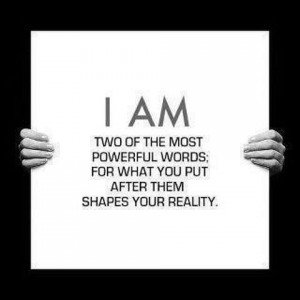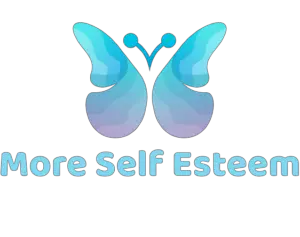Identity involves many different aspects of who you are. Struggling with low self esteem may involve identity issues such as inner conflict between who you think you are and how others see you. After years of writing about and helping others with building self esteem, I have seen that personal identity influences self esteem. Let’s see how.
What is Personal Identity?
Personal identity is your perception of who you are. This includes your personality and character, occupation, background, skills, experience and appearance. Personal identity can affect self esteem positively or negatively as both are based on how you feel about yourself.
Your personal identity includes the following:
- How unique you feel.
- What values you hold.
- Your physical appearance and how you feel about it.
- How you compare yourself to others.
- Attitudes you have towards your occupation and what this says about you.
- Your personal goals.
- Your personality and character.
All of the above pieces that make up your personal identity are evaluated by you and you construct your self-identity. This identity also includes your self-image and self-concept which are also parts of the identity you create for yourself.
Of course, other people will form different opinions of who you are and so your personal identity may be very different to how others see you. This can cause conflict as others may say things about you that seem untrue.
How Can Personal Identity Affect Your Self Esteem?
Personal identity can affect your self esteem because it affects how you value yourself. If you have a very strong and positive sense of who you are, your self esteem will be high.
However, if others criticise you often enough this can fill you with self doubt and you may start to believe what they say to you. This can lower your self esteem. This can easily become a negative downward cycle which is difficult to stop. As Stets and Burke state, it is believed that low self esteem causes many problems in a person’s social and personal life.
Personal self esteem can be high and include feelings of self worth, confidence, self acceptance and feeling capable. Low self esteem causes feelings of self loathing and rejection (Porter and Washington ,1979)
An identity is a set of meanings that defines individuals in terms of the roles they occupy, the social categories or groups they belong to, and the individual characteristics that define them as unique persons.
Stets and Burke, 2014.
From the above definition of identity we can conclude that it is very much connected with self esteem because a person will judge their role, the groups they belong to and their personal qualities in a positive or negative way. This will result in positive or negative self esteem.
Self Awareness and Personal Identity
One of the most important steps towards higher self esteem is to be clear about who you are and what values you hold. This is the goal of self awareness. The more self aware you are, the better you will know and understand the real you.
A lack of self awareness may lead to a personal identity that is not based on reality but rather on your imagination. Becoming truly self aware can help to become more in harmony with your true self and wishes. This will then make it possible to live a more authentic and purposeful life which will boost your self esteem.
According to this article in the Journal of Research in Personality, those who have a clear personal identity are more able to understand their own strengths and weaknesses and therefore have higher self esteem.
How to Improve Your Sense of Personal Identity and Boost Your Self Esteem
If you can start to see yourself more positively, your self esteem and confidence will increase. Here are a few questions to ask yourself:
1. Who are you? What makes you tick? Knowing this can lead you closer towards positive decisions which will move you towards living more authentically.
2. What makes you unique? Nobody among the billions of people living on this planet now or the billions of people who lived before, is, or was, ever exactly like you. Understanding this, can help you to enjoy everything that life has to offer.
3. What are your values? If you want to feel good about yourself then you need to understand what your values are and start living true to them. Many people compromise their values and believe they must live a certain way but this is the road to unhappiness and low self esteem.
4. Your internal identity – your personality and character make you unique and you should value them. So, focus on what positives you have in these two areas. What do you think are good aspects in your personality which help you or attract others to you? There is always something positive you can find if you look carefully. If you have a friend then what do you think they like about your character? Improvement here will raise your self esteem a lot.
5. How you see yourself in relation to others – this is related to your status as you see it. If you believe you have very low status, you will suffer low self esteem. However, if you feel you have a high status this will help you. The way to feel happier and improve your self esteem is to accept yourself based upon your values. Try not to compare yourself to others. Those who are very competitive do this all the time and are unhappy with low self esteem. Your own standards are more important than other’s, so follow what you want and believe.
6. How you identify yourself in terms of your job – don’t make the mistake of thinking that a job defines who you are, it is only what you do and nothing more.
7. Your personal goals – these say a lot about who you are and the values you hold. But, if you want to improve your self esteem you should have goals that move you closer to being who you really are.
Understanding Who You Are Can Guide You To Making Better Decisions
Once you understand who and what you are and what values are important, you will be able to make better decisions. As a result, you are able to move closer to where you want to be. I believe that your self esteem depends on living true to your nature (and this is also the point of view in the sources given below). Ignoring who you are is a recipe for pain and misery. So, follow your personal identity and let it guide you to a better place.
So, Who are you?

What message are you giving yourself and others? Is it positive or negative?
Please finish off this sentence, what would you say:
“I am …(add your own words here)”
If you cannot honestly and confidently say something positive about yourself then how can you build your self esteem, because this will show you have a negative opinion about yourself?
With such a negative opinion of who you are, how will you ever achieve your dreams? Discover 10 tips to achieving your dreams here.
Write out your most common “I am” sentences now. Not those you want to say but the real things you say in your head or to others.
Share your ideas by writing them below, make a comment too if you wish.
Let’s get started on the journey to more self esteem now…
A few Quotes to Inspire you to Feel Better about Your Identity
With motivation you CAN become more confident and build self esteem.
“We ask ourselves, ‘Who am I to be brilliant, gorgeous, talented, fabulous?’ Actually, who are you not to be?”
– Marianne Williamson
“It’s never too late to be what you might have been.”
– George Elliot
“I wish I could show you,
When you are lonely or in darkness,
The Astonishing Light
Of your own Being.”
Hafiz
“Do not be one of those who, rather than risk failure, never attempts anything.”
– Thomas Merton
“Yesterday I was clever, so I wanted to change the world. Today I am wise, so I am changing myself.”– Rumi
Need Some Help Finding Your True Personal Identity?
Find your true personal identity – Hypnosis downloads – Deep inside you know who you really are and how you would like to be – let this wonderful hypnosis session take you there.
Sources
- Luyckx, K. & Klimstra, T. & Duriez, B. & Van Petegem, S. & Beyers, W. & Teppers, E. & Goossens, L. (2013). Personal identity processes and self-esteem: Temporal sequences in high school and college students. Journal of Research in Personality. 47. 159-170. 10.1016/j.jrp.2012.10.005.
- Porter, J., & Washington, R. (1979). Black Identity and Self-Esteem: A Review of Studies of Black Self-Concept, 1968-1978. Annual Review of Sociology, 5, 53-74. Retrieved September 17, 2020, from http://www.jstor.org/stable/2945947
- Stets, J. E., & Burke, P. J. (2014). Self-Esteem and Identities. Sociological Perspectives, 57(4), 409–433. https://doi.org/10.1177/0731121414536141
